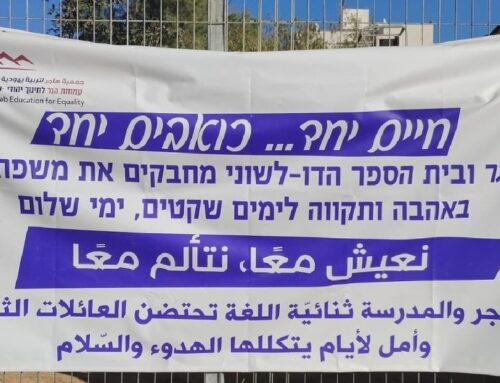Hillel Schenker, Tel Aviv
About 15 years ago, an American clinical psychologist interviewed me about my childhood heroes, as part of a project on role models for peace activists. Well, being New York-, or (to be more exact) Brooklyn-born and bred, my first childhood hero was Jackie Robinson of the Brooklyn Dodgers, the pioneering black baseball player, the first one to break the color barrier that existed in American professional team sports. His struggle against adversity had a tremendous appeal to a Jewish youth, a member of a minority group within American society and a child facing the grown-up world.
Two other childhood heroes were another black athlete, Jesse Owens, who in front of Hitler had deconstructed his racial superiority theories by winning four gold medals at the 1936 Olympics; and the great Native-American athlete, Jim Thorpe, who was outstanding in track and field, football, baseball and basketball.
As a youth and a future journalist who understood that you begin reading the daily newspaper with the sports pages (of the pre-Murdoch, liberal New York Post and The New York Times), and only afterward read the news pages, I was an avid fan of the New York teams—as long as they weren’t called Yankees or Giants. I can still recite the names of almost all the players on the Brooklyn Dodgers, New York Knicks and New York Rangers, back then.
Team ownership and management play a key role, and here I would cite the Brooklyn Dodgers’ general manager, Branch Rickey, who had the courage and determination to sign Jackie Robinson, and to back him when he faced racist taunts around the league.
Coaches too, and at this point I “make aliya” and choose Hapoel Tel Aviv coach Eli Gutman and his assistant Yossi Abukasis. My admiration for them begins when Gutman was the coach of Beitar Jerusalem, where he was the constant victim of taunts from fans for his methodical style of play. Abukasis, the team captain, had the courage to defend Gutman against the fans. In the past three years, the two have molded a great Hapoel Tel Aviv championship team, while successfully cultivating young players like Itai Schechter, Gili Vermouth, Bibras Natcho, Eran Zahavi and others.
Continuing with the Middle East connection, everyone admires Michael Jordan as perhaps the greatest basketball player ever, but for character, I choose one of his playmakers, Steve Kerr, whose father Malcom Kerr was assassinated when he was president of the American University in Beirut in the midst of the Lebanon civil war.
Fans are also important, and here I stay with the dedicated Hapoel Tel Aviv fans who shun the hyper-nationalism of some other teams (such as the Maccabi Tel Aviv basketball team) and say that we are only Hapoel Tel Aviv, not a national shrine.
And finally, the primary sign of my successful transition from American youth to Israeli adulthood is not my service in the IDF, the level of my Hebrew or my social activism, but the fact that today I am far more interested in soccer than I am in baseball.
Hillel Schenker is co-editor of The Palestine-Israel Journal.






Leave A Comment